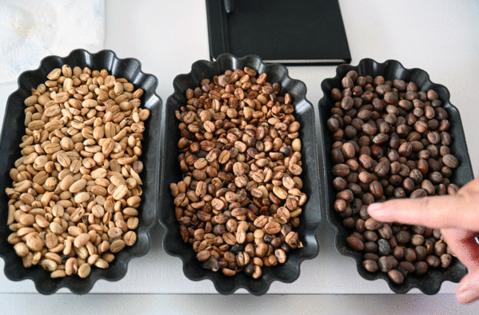LZ Granderson: Coffee prices are rising. Wake up and smell the climate change
Published in Op Eds
Most Americans don't think twice about leaving half a glass of water on the table as they leave a restaurant. It's only when we pay for it that we tend to leave no drop behind. Cost drives alcohol decisions too — ditch the cheap beer to beat traffic home but finish a $20 pour even if it's made poorly.
Now it seems we'll be playing this game with coffee.
Rising temperatures, prolonged summers and droughts — courtesy of climate change — have crippled crop production in many of the world's top coffee-producing nations. From there, you know the drill — high demand, low supply, higher costs. Doesn't really matter what your politics are, record heat has had an undeniable impact on agriculture and the global supply chain.
Vietnam, for example, produces most of the beans used for espresso and instant coffee in the world. This year, farmers spent parts of what is normally Vietnam's rainy season trying to save their crops from the worst drought in a decade. UNICEF reported that several provinces declared a state of emergency due to the lack of rainfall and saltwater intrusion into the freshwater Mekong Delta. Rice fields were lost; fish and shrimp died; and tons of robusta coffee beans were rendered unsalvageable, leading to a near 50-year high in price according to the International Coffee Organization.
Coffee consumers paid for those lost beans — as well as arabica beans similarly lost in Brazil — with their cups each morning via price hikes. And by coffee consumers, I'm mainly talking Americans, as we are the industry's second-largest bean importer. This year the National Coffee Assn. reported daily consumption is at a 20-year high with 63% of Americans drinking more coffee each day than any another beverage.
That includes water, which can't be good for the skin.
Anyway, the economics of coffee are changing alongside the weather.
Assuming this trend continues, there may soon come a time in restaurants when we're charged for that "one more cup with dessert" more often than not. If that threshold is reached, diners may treat coffee more like a pricey menu item — think cold-pressed juice — and less like the water we get when we first sit down.
One study estimates that roughly half of the regions where coffee beans are harvested most today won't be as viable by 2050 due to changes in climate. The good news is other parts of the world will become more favorable for coffee growing.
But there's more bad news: The regions that depend most on the coffee industry for their economy are already poor.
This is perhaps the most immoral aspect of watching members of Congress downplay the impact of melting polar caps or having presidential debates in which the topic of global warming is handled like an afterthought. Developing nations routinely suffer the most from the weather shifts caused by industrialized, wealthier nations like ours. It's only our distance from so many of the calamities we contribute to that allows so many candidates for public office to adapt gaslighting as an effective political strategy.
Two summers ago in Pakistan, more than 1,700 people died, millions of homes were destroyed and acres of crops lost after flooding because of record rainfall and melting glaciers. In Panama, a 20-year drought forced trade delays because the Panama Canal didn't have enough water. Roughly 40% of global cargo traffic uses the canal, and at one point more than 160 cargo ships were in limbo because of the lack of water.
During harvest time for coffee plants in Costa Rica, nearly 60% of the pickers are migrants from neighboring countries such as Nicaragua. If this economic ecosystem collapses in Central America in large part because of man-made climate change, the ripple effect will far exceed the price of coffee at a restaurant.
It would exacerbate the region's humanitarian crisis that has already driven millions to our southern border, and polluted political rhetoric with racialized fearmongering. The World Bank estimates an additional 100 million people could face food insecurity by 2030 because of displacement and lost farmland. The United Nations predicts that in 30 years more than 140 million would be uprooted because of rising sea levels, droughts and other extreme weather conditions.
Amali Tower, who runs an advocacy organization for those displaced by weather said, "One problem is just the complete lack of understanding as to how climate change is forcing people to move. We've got to approach climate displacement as a human security issue and not a border security issue."
A tall task when only 37% of Americans believe climate change should be a top issue for the president and Congress according to the Pew Research Center.
As usual, the economy tops the list.
It's as if that's an either/or when in fact one directly affects the other. The rising cost of coffee isn't the only example of that dynamic. However, given how much Americans love drinking it, there is hope that the high cost of coffee may be the thing that finally wakes us up.
_____
©2024 Los Angeles Times. Visit latimes.com. Distributed by Tribune Content Agency, LLC.




























































Comments